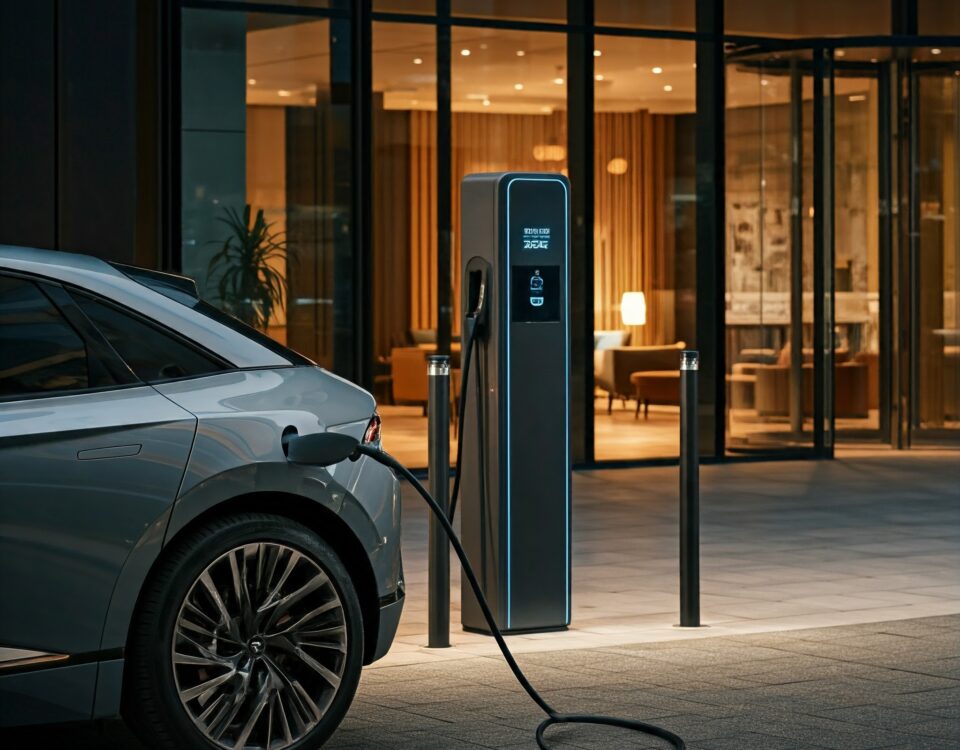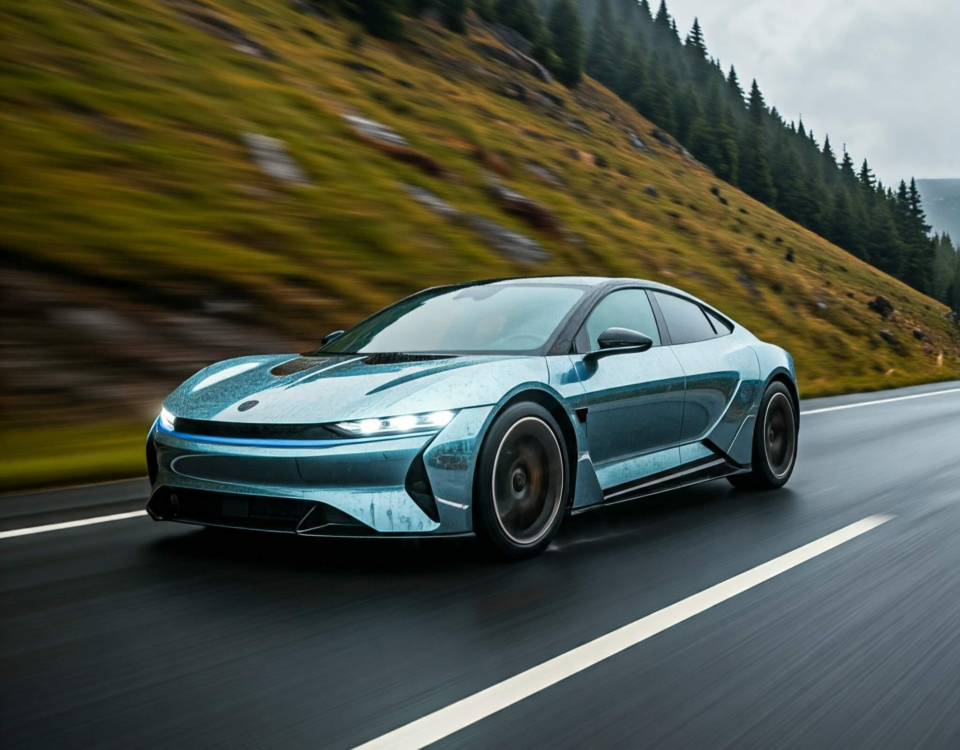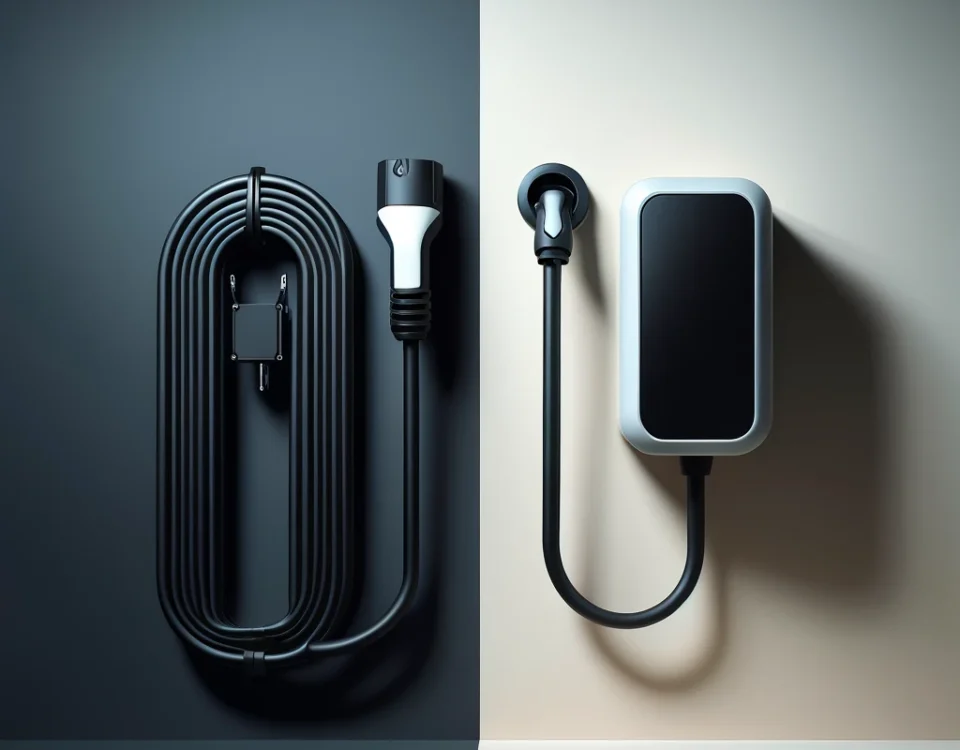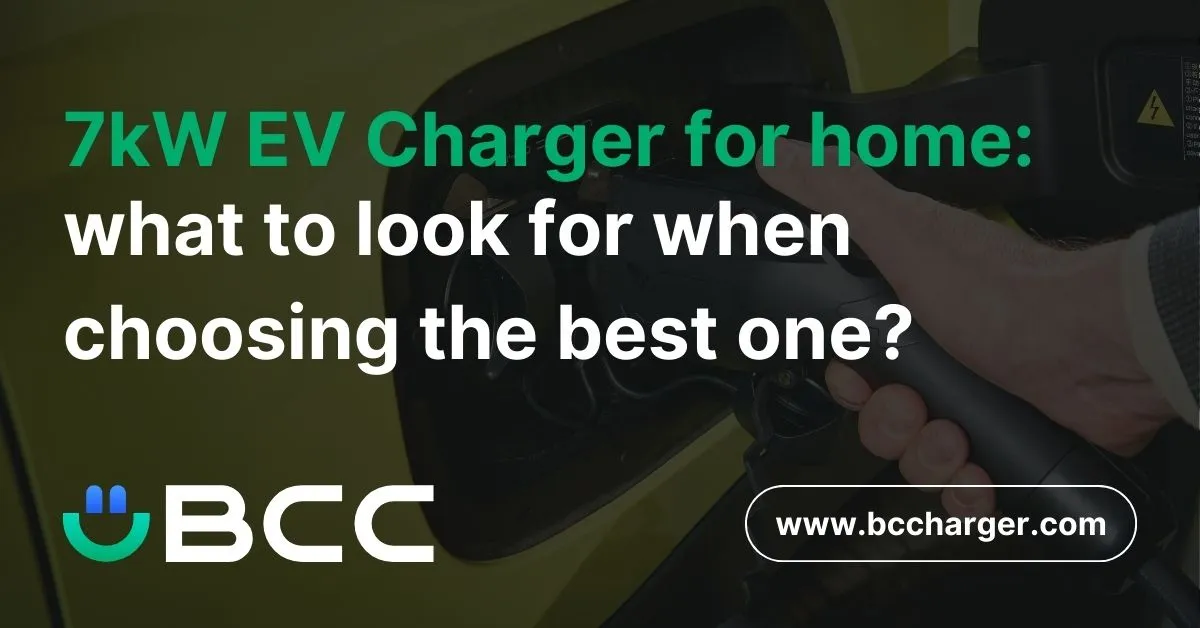
As the adoption of electric vehicles (EVs) accelerates across Europe, the importance of having a reliable and efficient home EV charger has never been greater. For many EV owners, the convenience of charging at home is a significant aspect of the EV experience. When selecting a 7kW EV charger for home, several key considerations come into play. These include the charger’s power output, compatibility with various vehicle models, safety features, ease of installation and its integration with home energy systems. Understanding these aspects ensures that EV owners can make an informed decision that best suits their daily charging needs.
Table of Contents
Understanding Specifications of a 7kW EV Charger for Home
The power output of an EV charger is a crucial specification, with the 7kW charger being a popular choice for home use. This power level strikes a balance between efficient charging time and the typical power availability in residential settings. Additionally, the relevance of the Type 2 connector standard in EV chargers is paramount, especially in Europe. Type 2 connectors are widely adopted due to their compatibility with a broad range of EVs, making them a versatile choice for EV owners. This standardisation ensures that drivers can charge their vehicles conveniently at home or at public charging stations.
- 7kW EV Chargers for home: Ideal for residential use, balancing efficient charging time with typical residential power availability and prevent EV’s battery degradation.
- Type 2 Connectors: Crucial for Europe.
- Wide Compatibility: Fits a broad range of EVs, ensuring versatility.
- Standardisation Benefits: Allows convenient charging both at home and public stations.
Charging Speed and Efficiency
Charging speed is a vital factor for EV owners, and a 7kW charger offers a practical balance between speed and energy efficiency. It provides a faster charging experience than lower-powered units while being more accessible and economical for home installation than higher-powered alternatives. The 7kW EV charger for home typically offers adjustable charging power, allowing users to optimise their charging based on their current needs. This flexibility is beneficial for managing energy consumption and costs, particularly during peak hours, and can also extend battery life by avoiding excessive power draw.
Safety Features in EV Chargers
Safety is paramount when it comes to EV chargers. Features like over-voltage and over-current protection are essential to prevent electrical hazards and ensure the longevity of both the charger and the vehicle’s battery. These protections guard against unexpected surges in power, which can be damaging. Additionally, certifications and standards play a crucial role in charger safety. Compliance with European standards, such as CE marking, indicates that the 7kW EV charger for home meets high safety, health, and environmental protection requirements, giving users peace of mind.
Design and Aesthetics for Home Use
The design of an EV charger is not just about functionality; it’s also about how it integrates into a home setting. A charger with a modern, sleek design can complement the aesthetics of a residential property, blending technology with lifestyle. When choosing a 7kW EV charger for home, considering its appearance is important, as it often becomes a visible part of your residence. Chargers that feature a compact, unobtrusive design are preferable, as they do not disrupt the home’s exterior or interior design scheme.
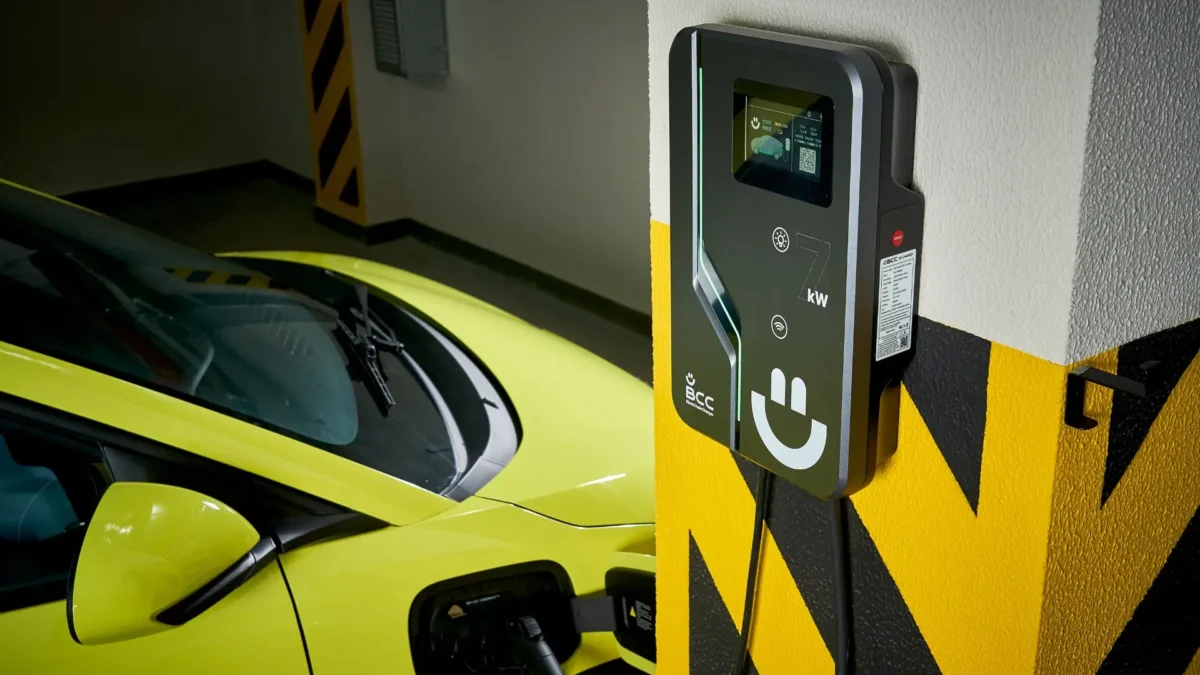
Compatibility and Flexibility
The compatibility of an 7kW EV charger for home usage with various electric vehicle models is crucial for ensuring a wide range of usability. A charger that supports universal compatibility offers significant advantages, as it can cater to a diverse array of EVs, making it a versatile choice for households with different types of electric vehicles. This adaptability is important for users who might change their vehicle in the future or have multiple EVs with different requirements.
Smart Features and Connectivity
Modern EV chargers are increasingly equipped with smart features, enhancing the charging experience. WiFi connectivity and remote management capabilities allow users to control and monitor their charging sessions via smartphones or other devices. This connectivity also facilitates integration with smart home systems and charging networks, providing additional convenience and efficiency. The ability to connect to broader networks can offer benefits like remote diagnostics, usage tracking, and even integrating with renewable energy sources. The OCPP connection allow users to connect their 7kW EV chargers to platforms such as GoCharge Tech – decentralised network of EV chargers with monetisation.
Environmental Considerations
Energy efficiency is a key aspect of EV chargers, not only for cost savings but also for environmental impact. Chargers with high energy efficiency and low standby power consumption contribute to reducing the overall carbon footprint of EV ownership. Efficient chargers ensure that the energy drawn from the grid is used effectively, minimising waste.
Practical Aspects: Installation and Maintenance
The installation of an EV charger should be straightforward, often requiring professional assistance to ensure safety and compliance with local regulations. Ease of maintenance is also crucial, as it ensures long-term reliability and performance. Additionally, the importance of a robust design cannot be overstated. Chargers designed to withstand various environmental conditions ensure functionality and durability, regardless of the setting.
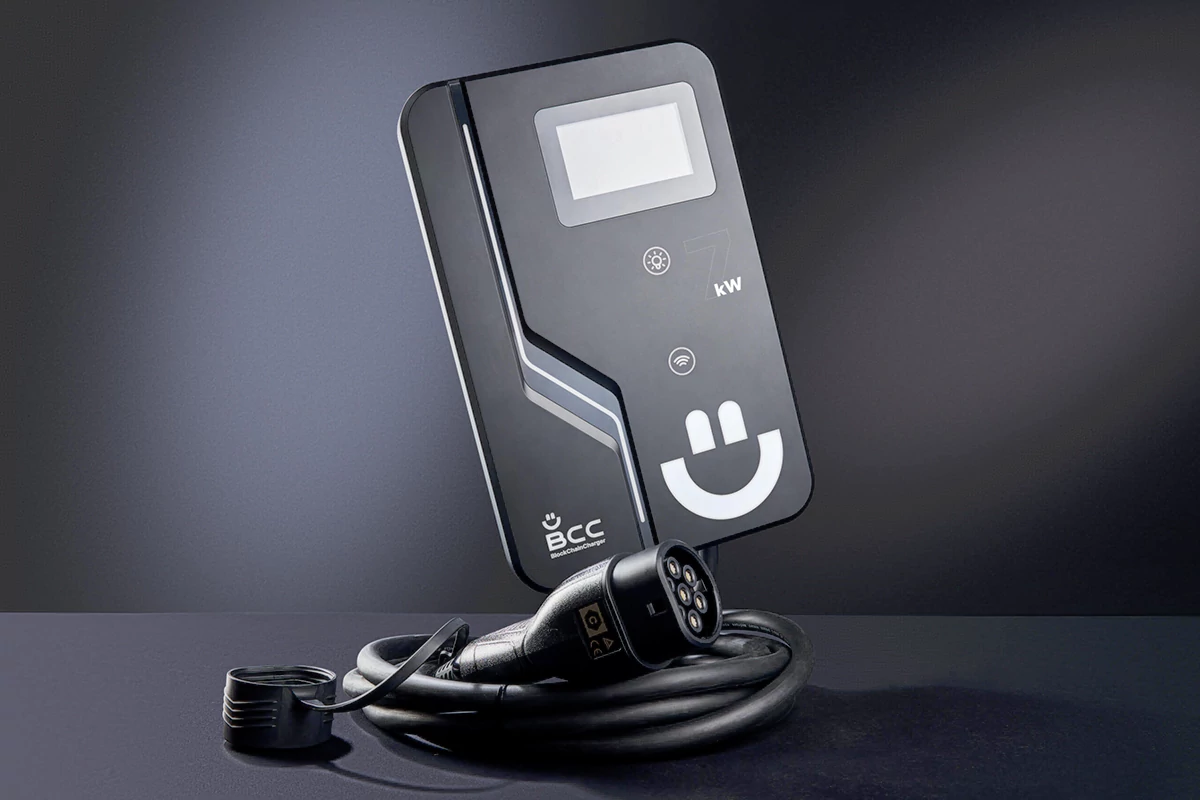
User Experience and Customer Support
When selecting a 7kW EV charger for home, the user experience and customer support are vital considerations. A charger with an intuitive interface enhances user interaction, making the charging process more accessible and enjoyable. Equally important is the level of customer support provided. Comprehensive support services, including installation guidance, responsive after-sales assistance, and a strong warranty, are indicative of a manufacturer’s commitment to customer satisfaction. These aspects significantly contribute to the overall experience of owning and using an EV charger, influencing both the ease of daily use and long-term reliability.
Cost-Efficiency and Long-Term Value
When considering a 7kW EV charger for home, evaluating its cost-efficiency and long-term value is essential. This includes not only the initial purchase price but also the operating costs over time. A charger that is energy-efficient can lead to significant savings on electricity bills. Additionally, factors like the durability of the charger and the length of the warranty can impact its long-term value. Choosing a charger that balances upfront costs with efficient operation and longevity can be a financially savvy decision for EV owners, ensuring they maximise their investment in the long run.
Conclusion
When choosing a 7kW EV charger for home, key considerations include its power output and efficiency, the universal compatibility with different EV models, and the incorporation of safety features. The design should align with home aesthetics, and smart connectivity enhances the overall experience. Energy efficiency and environmental considerations are also important, as are the practical aspects of installation and maintenance. Ultimately, the right charger should align with your personal needs and preferences, ensuring a seamless integration into your daily routine.
For those in search of a 7kW EV charger for home that embodies these essential features, our BCC StartUp 7kW EV Charger stands out. It’s designed with efficiency, safety, and user-friendliness in mind. This charger offers a blend of performance and aesthetics suitable for any modern home. With its smart connectivity features, compatibility with various EV models, and robust design, it represents a forward-thinking choice for environmentally conscious consumers. Discover more about how our product can meet your EV charging needs at BCC StartUp 7kW EV Charger page.
